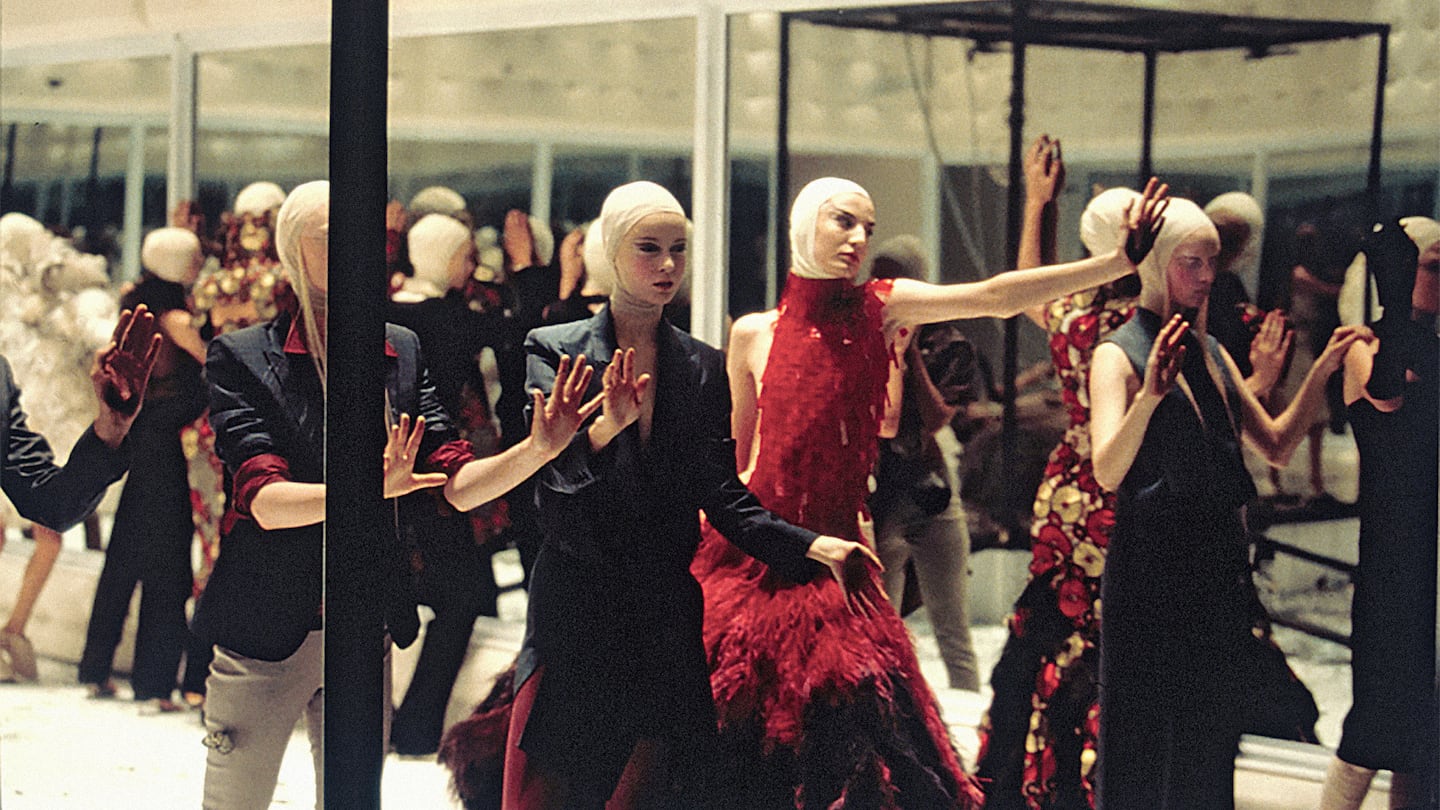
The Business of Fashion
Agenda-setting intelligence, analysis and advice for the global fashion community.

Agenda-setting intelligence, analysis and advice for the global fashion community.

The partnership will be the debut of the reseller’s “Brand Approved” programme, in which Alexander McQueen will solicit secondhand items from a select group of its shoppers, which will then be authenticated by the brand and listed on Vestiaire Collective’s platform.
The shoppers, in turn, receive store credit from Alexander McQueen, and the buyers of items under the programme will receive extra verification of their authenticity.
“We have started the outreach by approaching the most engaged customers over the past few years,” explained Alexander McQueen chief executive Emmanuel Gintzburger.
“Now that the service has launched, it will be available for future interested brands,” Vestiaire Collective co-founder and president Fanny Moizant said in an email statement to BoF.
ADVERTISEMENT
Alexander McQueen joins a fast-growing list of luxury labels venturing into resale for the first time in recent months. Last October, Gucci announced a similar partnership with The RealReal, while Levi’s unveiled its own secondhand channel operated by resale white-glove service Trove.
Brands have many options when it comes to choosing a resale service, from building its own resale arm completely in-house to working with one of several resale models that outsource the technology and logistics components, including Vestiaire’s Brand Approved programme.
The Future of Fashion Resale Report — BoF Insights
BoF’s definitive guide to fashion resale, covering the evolution of the market, its growth and upside, consumer behaviours and recommendations for crafting a data-driven resale strategy. To explore the full report click here.
The Future of Fashion Resale is the first in-depth analysis to be published by the BoF Insights Lab, a new data and analysis unit at The Business of Fashion providing business leaders with proprietary and data-driven research to navigate the fast-changing global fashion industry.
Editor’s Note: This article was revised on 16 February 2021 to include a comment from Alexander McQueen chief executive Emmanuel Gintzburger. It was updated a second time on 17 February 2021 to clarify how the programme works. An earlier version stated Alexander McQueen will buy back secondhand items from clients. The brand will in fact issue clients with a credit note and Vestiaire Collective will then purchase the items from the brand.
The British musician will collaborate with the Swiss brand on a collection of training apparel, and will serve as the face of their first collection to be released in August.
Designer brands including Gucci and Anya Hindmarch have been left millions of pounds out of pocket and some customers will not get refunds after the online fashion site collapsed owing more than £210m last month.
Antitrust enforcers said Tapestry’s acquisition of Capri would raise prices on handbags and accessories in the affordable luxury sector, harming consumers.
As a push to maximise sales of its popular Samba model starts to weigh on its desirability, the German sportswear giant is betting on other retro sneaker styles to tap surging demand for the 1980s ‘Terrace’ look. But fashion cycles come and go, cautions Andrea Felsted.